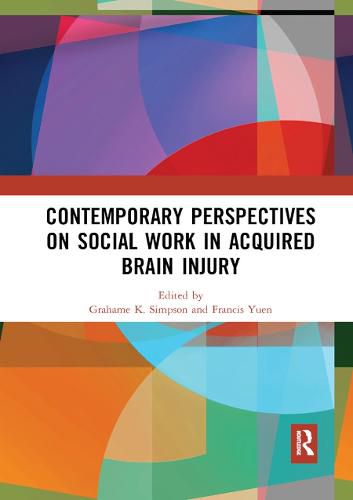Readings Newsletter
Become a Readings Member to make your shopping experience even easier.
Sign in or sign up for free!
You’re not far away from qualifying for FREE standard shipping within Australia
You’ve qualified for FREE standard shipping within Australia
The cart is loading…






Contemporary Perspectives is the first book to address social work practice in the field of brain injury (BI). Contributions are written by social work authors from around the world, and highlight the diversity of social work practice and theory within this field. Chapters range from practice spanning interventions with families caring for a child with BI; interventions to assist the adjustment of families facing the challenge of supporting an adult relative with BI during the inpatient rehabilitation or post-acute community phase; work with parents with BI who are caring for children deemed to be at risk; and a literature review outlining the impact of a BI on siblings. Other chapters detail a program for self-advocacy; investigate the impact of violence-related BI; evaluate a peer-support program for people with BI; report on the role of support people in facilitating return to work after BI; and examine the role of social work within the interdisciplinary rehabilitation team.
The volume highlights the valuable role social work makes to the field of BI and contributes to the knowledge base informing evidence-informed practice within this field.
This book was originally published as a special issue of the Journal of Social Work in Disability & Rehabilitation.
$9.00 standard shipping within Australia
FREE standard shipping within Australia for orders over $100.00
Express & International shipping calculated at checkout
Contemporary Perspectives is the first book to address social work practice in the field of brain injury (BI). Contributions are written by social work authors from around the world, and highlight the diversity of social work practice and theory within this field. Chapters range from practice spanning interventions with families caring for a child with BI; interventions to assist the adjustment of families facing the challenge of supporting an adult relative with BI during the inpatient rehabilitation or post-acute community phase; work with parents with BI who are caring for children deemed to be at risk; and a literature review outlining the impact of a BI on siblings. Other chapters detail a program for self-advocacy; investigate the impact of violence-related BI; evaluate a peer-support program for people with BI; report on the role of support people in facilitating return to work after BI; and examine the role of social work within the interdisciplinary rehabilitation team.
The volume highlights the valuable role social work makes to the field of BI and contributes to the knowledge base informing evidence-informed practice within this field.
This book was originally published as a special issue of the Journal of Social Work in Disability & Rehabilitation.